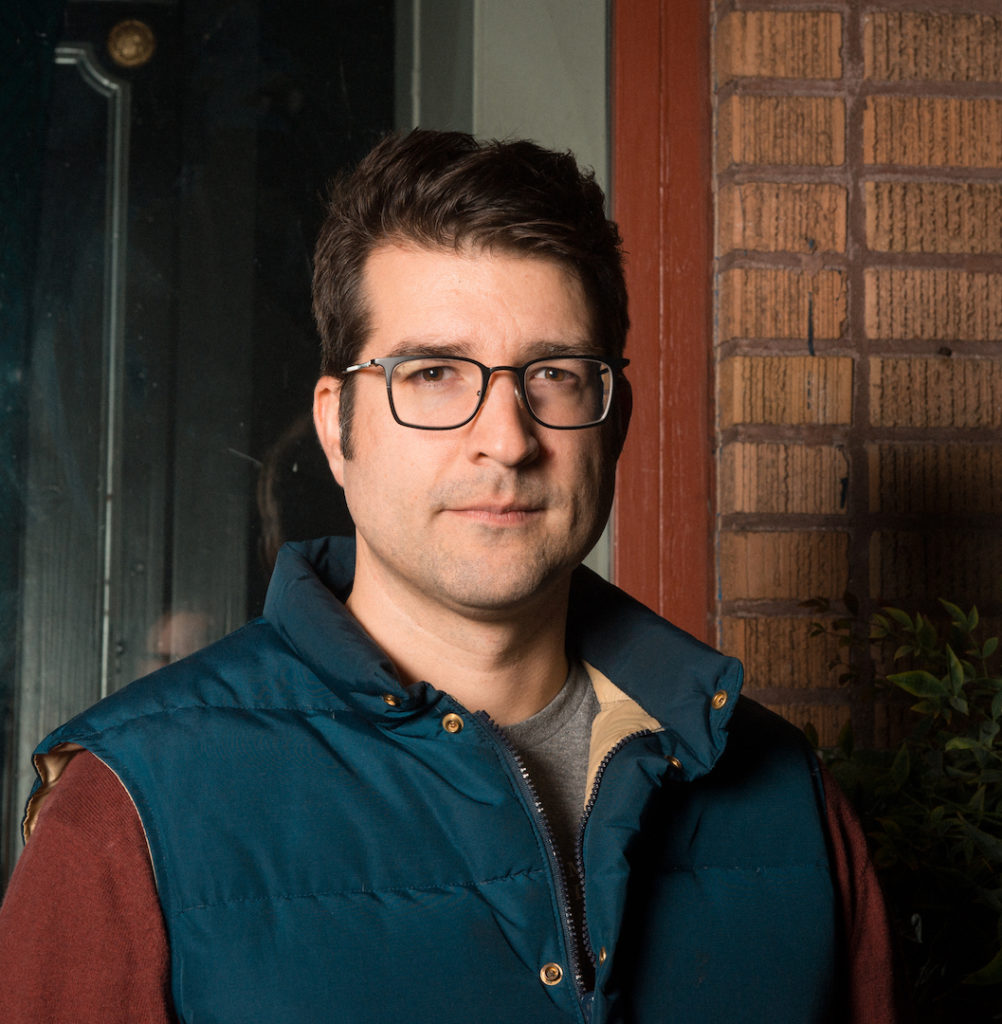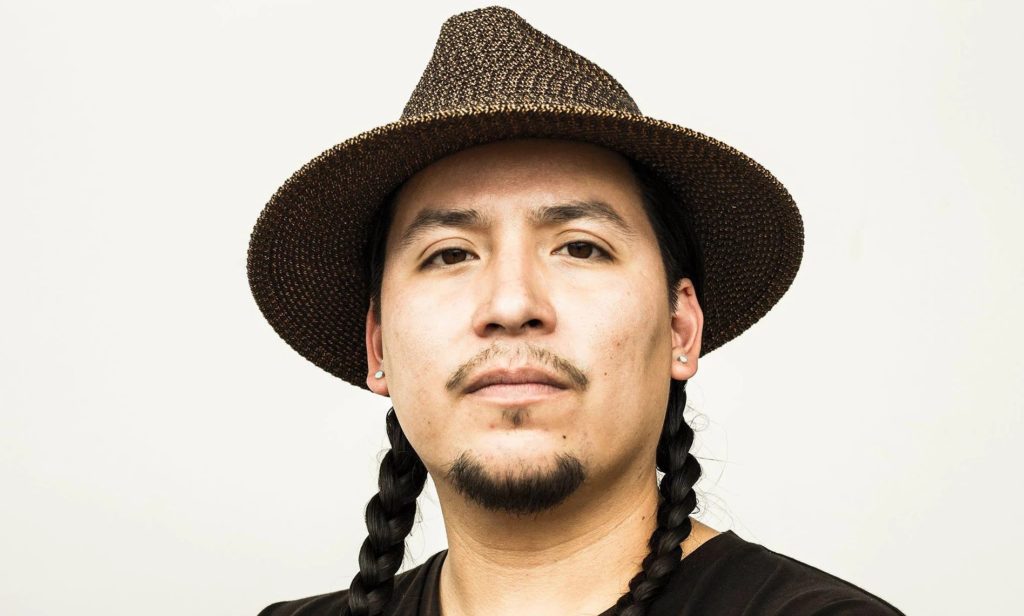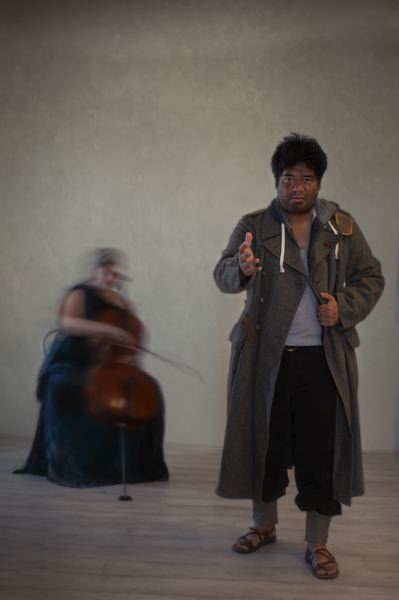Introducing More Devotedly and the ideas behind it.
After many hours of planning and producing, More Devotedly is finally here. I’m excited to share this show with all of you. In this prologue to Volume I, I introduce myself and the reasons for starting this project.
Don’t miss our launch party at 7 pm on Sunday, October 6th, 2019 at The 1905 in Portland, Oregon. Join the More Devotedly community on Facebook, and follow us on Instagram at @moredevotedly.
Transcript
This is the first episode of More Devotedly, so I wanted to take a few minutes to introduce myself, and talk about why I’m launching this whole thing. More Devotedly is a podcast, a band, a record label, and most importantly, a community of like-minded folks who want to learn from each other and talk about how artists can address the most important issues in today’s political and cultural environment.

Every quarter, in what I’ll call “volumes,” I’ll be releasing a collection of stories and interviews on this podcast, as well as music by me and live events created in collaboration with other artists, all of it inspired by a theme. In volume one, we’re talking about this question: who belongs here? In the next three episodes you’ll hear from some very different artists about their experience answering that question, but for now, I’ll share some of my own thoughts, and why I feel like I belong behind this microphone.
I hope you enjoy it, and I hope that you’ll subscribe to the podcast, join our email list, and become a part of the More Devotedly community.
It’s time to make some progress.
^^^^^
When I was a kid, I sat in the middle seat of our family station wagon between my brother and sister whenever we went somewhere as a family. The middle seat is the easiest place for the smallest kid to sit, sure, but my parents would say they put me there to keep my siblings from fighting.
Like that boy who found himself stuck between a rock and a hard place—apologies to my brother and sister—I’ve always looked for the middle ground. But, what started out as a coincidence of birth order turned out to be an approach to life for me. I’ve always seen myself as a peacekeeper, mostly keeping my own opinions to myself, looking for ways to solve problems without people getting upset.
I often put off making hard decisions until the last minute, forcing me to choose the least worst option that’s still available. It’s like agonizing over what to choose at a restaurant, finally ordering your top three choices, then taking them all home to rot in your fridge. Making decisions slowly can prevent you from rushing into bad situations, but indecision can be as costly as recklessness. Sitting on the fence has its ups and downs.
However, I’ve never doubted that I was an artist. I was sure of my decision to study music in college, and though that decision had its costs, I’d do it again if I had the chance. To me, pursuing music wasn’t as much a choice as a matter of identity. I thought about my life, and life in general, in terms of music. I saw the world the way an artist sees it. For me that means tending a garden for my whole life just to enjoy the occasional flowering of creative work, enjoying that toil nearly as much as the fruit of it. The fleeting joy I find when performing makes all the rest of the work worth it.
^^^^^
Like I said, I’ve always known I was some kind of artist, but I haven’t always known what kind of artist I was. It’s never been a question of if for me, it was how.
As you’ll hear, my tendency towards indecision, or non-decision, has led me into some interesting territory. I led a musical group for seven years that blended together jazz and classical music, called AnyWhen Ensemble. I played trumpet in the group and composed the music.
More recently I’ve become a fundraiser. I’m the executive director of a small nonprofit called Portland Jazz Composers Ensemble, based here in Portland, OR. I’ve led the organization in a new direction, helping Portland’s talented jazz community step into the role of cultural storytellers, pathfinders, and healers as they participate in our community’s most pressing conversations.
This is the PJCE playing a piece I composed in 2017 around an interview with Captain Deborah Dempsey, the first female Columbia River Bar Pilot. The interview was produced by Jessica Hanberry.
As I continue working with that organization and as a jazz trumpet player and composer, I’ve also become a banjo-playing singer-songwriter, inspired by some classic icons like Pete Seeger, Elizabeth Cotten, and Roscoe Holcomb, as well as contemporary players like Sam Amidon and Rhiannon Giddens. This is music from a group of mine called Little One, with Bill Marsh on guitar, Andy Rayborn on bass clarinet, and Lauren Elledge on viola.
There’s a long story behind that musical journey that I’ll share with you at some point on the show, but hearing all of the music gives you an idea of where I’m coming from, and where I’m hoping to go, with the help of all of you.
More Devotedly is distinct and separate from my work as a nonprofit leader. For a community-based nonprofit, a 501(c)(3) organization like the PJCE, it’s not legal nor appropriate to support or oppose particular candidates for office. But for me personally, as an artist and a citizen in this political and cultural moment in the United States, that’s something I feel compelled to do. Sitting on the fence, remaining neutral as devastating problems continue to challenge our country and the world, is no longer an option for me.
But I don’t see myself as an expert, or as a leader. I’m committed to learning more about how our community of artists is engaging with issues, to find out how its having an impact, and apply those lessons to my own work, and encourage all of you to do the same. On Most Devotedly, we’ll learn together how to take steps towards the world we want to live in.
I can’t wait to get started.
^^^^^
I was born in southern New Jersey, but I grew up in the suburbs of Portland, Oregon, and I’m a progressive Democrat. Though Oregon is a bright blue state, there is still a strong conservative tradition here, and many in my family identify with it. That’s led to some tense moments around the dinner table.
When the discussion turned critical of Democrats, I would avoid the conversation by saying that “all politicians are the same.” But answering the question that way wasn’t a principled stand, it was an escape mechanism.
Politics can be exhausting. And because conflict, rather than cooperation, is rewarded in our system, it can seem like politics is indistinguishable from fighting. And at those family gatherings, it felt like that same fight on a smaller, more personal scale. So I would do everything I could to avoid it.
But now, after saying for years that all politicians are the same, it’s clear to me that all politicians are not the same. With the generational problems we face today—catastrophic climate change, crushing economic inequality, rising white nationalism, and a breakdown of our democracy—it’s time for new voices to get involved in politics. The stakes of the upcoming elections are higher than ever before.
As I’ve been telling friends and family about his project, I’ve met artists who are at many different points along the spectrum of engagement with politics, including those who call themselves artist-activists, some who are apathetic, some who purposefully disconnect their work from political issues, to those who are completely paralyzed by fear of the political process.
On More Devotedly, we’re going to bring all those different people together and get them talking to each other. We’re going to build a shared understanding of our power as artists in our society, and teach each other to use that power. I can’t wait to see what we can achieve together.
^^^^^
In Volume One of More Devotedly, we’re thinking, talking, and making work about belonging.
I see the concept of belonging as one of the fundamentals of both the arts and political or cultural activism. Any artistic work or political message needs to have a strong sense of the audience it is speaking to, it must know to whom it belongs, what audience will identify with the message.
Like all politicians, President Trump has emphasized the idea of belonging, but he has done so as his first priority, rather than a focus on traditional Republican policy goals. This populist approach has long been a part of Republican politics, but Trump has tapped it like no one else in recent memory.
But, rather than creating a stronger sense of belonging for all Americans, as I’d hope a president would, he distorts and manipulates it for his own benefit. As the Republican party embraces this approach to politics, we artists need to understand the meaning of it, and we need to respond.
But how should we? Following the president down this road, to insist that only Democrats are the real Americans, would be the wrong answer in my view. We need to show that all of us depend on each other. We can show that the people that the president demonizes aren’t monsters but human beings who have the same rights as everyone else. We can make work that advocates for the weak, that amplifies the voices of the silenced. We can hold up the values we believe in, and show that when they are abandoned by this president, it won’t happen without a fight.
And we’re going to have a lot of fun while we do it. I know what I just said is pretty high minded. I really do believe in all of it, but let’s remember to find joy in work at the same time. Part of what makes this president so damaging is the way he constantly dehumanizes his political enemies. Let’s not dehumanize ourselves as we respond to that.
The three episodes of Volume One explore three different approaches to belonging. Joe Kye, whose violin loops and singing defy stereotypes of his instrument and of what Asian-Americans can do with music. He and I talked about how Fred Rogers inspires him to create space for adults to grow their compassion for themselves and others. Kunu Bearchum talked about how music and video production have helped him to become the writer and director of his own life, and how he passes that perspective on to young indigenous people to apply to theirs. Last, Anna Fritz and Paul Susi performed a play called “An Iliad” for inmates at prisons across Oregon, helping these incarcerated people rebuild connections to the outside, and even more importantly, to themselves.

Joe Kye 
Kunu Bearchum 
Anna Fritz and Paul Susi
Each artist is targeting a different community, but using a similar overall strategy. They’ve each taken a tradition—from ancient theater to hip hop—and removed it from the constrictive ideas of who traditionally is the performer and who is the audience. The very act of making their work, looking the way they look, performing in the physical space that they’ve chosen, send a message—you who is hearing or seeing this work, you matter. Your anxiety matters enough to be relieved. Your sense of alienation deserves to be transformed into belonging. You belong here.
As you hear these artists speak about their experiences, you’ll hear what I mean. Until then, I’ll leave you with one last thought.
I chose the name for this project from a well-known quote by composer and conductor Leonard Bernstein. Speaking to the United Jewish Appeal of Greater New York on November 25th, 1963, just three days after John F. Kennedy was assassinated, he said:
“We musicians, like everyone else, are numb with sorrow at this murder, and with rage at the senselessness of the crime. But this sorrow and rage will not inflame us to seek retribution; rather they will inflame our art. Our music will never again be quite the same. This will be our reply to violence: to make music more intensely, more beautifully, more devotedly than ever before.”
Leonard Bernstein
Whenever tragedy strikes, I see this quote going around on social media. As mass shootings and other senseless violence continues we unfortunately have more and more opportunities to see it. I think the words are beautiful, and the sentiment is profound, though I’ve always felt that it didn’t go far enough. The action that he mentions, to make music “more devotedly” than ever before, is a right and good thing to do. We should all do this, because it really can save people.
But I think that Bernstein also saw limitations on his medium that I don’t see. What if there is music that can not just respond to, but prevent violence? I think there has been, and I think there can be yet more. It’s up to us to make it.
Credits
This episode was written and produced by me, Douglas Detrick, in Portland, OR. I also composed the music you heard, including the introduction and interstitial music and pieces performed by AnyWhen Ensemble, Little One, and Portland Jazz Composers Ensemble. The More Devotedly logo was created by Lindsay Jordan Kretchun.
